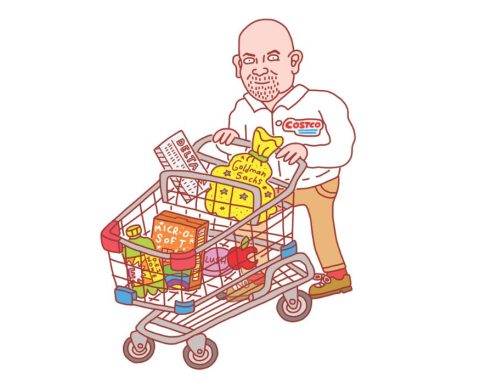In this people-powered economy, there isn’t a more strategic resource than workers. Their innovation, productivity and the sustainability of their well-being are critical to the success of any company. But are corporate leaders fostering this potential?
More and more companies are talking about their performance on environmental, social and governance (ESG) criteria, and with good reason: it affects brand reputation, alignment with emerging regulations, and business performance and sustainability. The same is true for workplace mental health. However, a recent study of 100 of the largest publicly listed companies globally by CCLA Investment Management found that while nine in 10 companies recognize the business relevance of mental health, less than half have formalized their commitments. With this in mind, LifeWorks* and Corporate Knights embarked on a collaboration to understand if ESG leaders are also leaders in workplace mental health.
In June, we offered the Top 50 Corporate Citizens in Canada of 2022 the opportunity to complete the LifeWorks Workplace Strategy Index for Mental Health (WSI-MH). The WSI-MH offers insight into how an organization’s policies and programs compare to established frameworks in workplace mental health, such as the International Organization for Standardization, and how organizations benchmark against peers.
The WSI-MH is an online assessment tool broken down into four levels: compliance to basic risk management, foundational responses to mental health concerns, programming that can positively affect mental health and well-being, and cultural integration of mental health policies and practices. The assessment is typically completed by a senior human resources representative. (LifeWorks also offers an employee-level assessment, the Mental Health Index, to pair with the WSI-MH if requested to determine employees’ mental health needs.) Once they’ve completed the assessment, companies receive a confidential report that provides recommendations on where and how to improve.
Canada’s corporate leaders are making progress but still have work ahead when it comes to supporting workers on mental health.
So, what did we find? Canada’s corporate leaders are making progress but still have work ahead when it comes to supporting workers on mental health. Twenty percent of top corporate citizens completed the assessment, and they scored 5% above LifeWorks’ cross-industry Canadian benchmark. The key to their higher score was having comprehensive foundational practices, such as providing generous paid sick days and mental health benefits (6% higher than benchmarks) and more comprehensive programming to support the mental health needs of their employees (8% higher than benchmarks).
A handful of companies averaged 18% higher than the overall benchmark, with the primary driver being cultural integration of mental health policies and practices.
The Co-operators Group stood out for its commitment to fostering an organizational culture responsive to employee mental health needs. The insurance firm scored high in cultural integration (e.g., visible commitment to mental health), helping them earn a good overall score. “Over the years, we have learned how willing and open our employees are to sharing their mental health stories, participating in education sessions, and genuinely taking a vested interest in each other’s well-being,” says Laura Mably, executive vice-president and chief human resources officer at Co-operators.
Insurance company Sun Life Financial has an array of policies, programs and processes to ensure their employees have supports when needed. That helps explain why it had leading scores in both foundational practices (e.g., mental health coverage within standard benefit packages) and programming (e.g., manager training in mental health), contributing to a high overall score. “The pandemic forced us to flex our wellness strategy,” says Katrena Munsch, Sun Life’s director of mental wellness. “We needed to ensure our employees had flexibility to manage their personal responsibilities, access to digital care, and navigational support for the many resources in our program, to ensure they could access the right resources at the right time based on their unique needs.”
Alectra Utilities had balanced scores in each section, leading to a high overall score. Adele Snetsinger, manager of learning and organizational development, says that Alectra’s wellness framework reflects the fact that “a person’s well-being is made up of interdependent elements. Our framework ensures a holistic approach to employee well-being and addresses all the elements that support a healthy body, mind and lifestyle.” That includes mental health counselling for needs ranging from acute to long-term and policies enabling psychological and physical workplace safety to drive cultural change.
Our research confirms that Canada’s corporate leaders are working to improve their employees’ mental health. It is, of course, a journey, and more work remains. If companies around the globe want to be genuine leaders in corporate responsibility, they’ll have to ensure that their employee mental health is as sustainable as their environmental footprint.
Paula Allen is senior VP of research and total well-being at LifeWorks.
*UPDATE: On February 1, 2023, LifeWorks was officially rebranded as TELUS Health.







